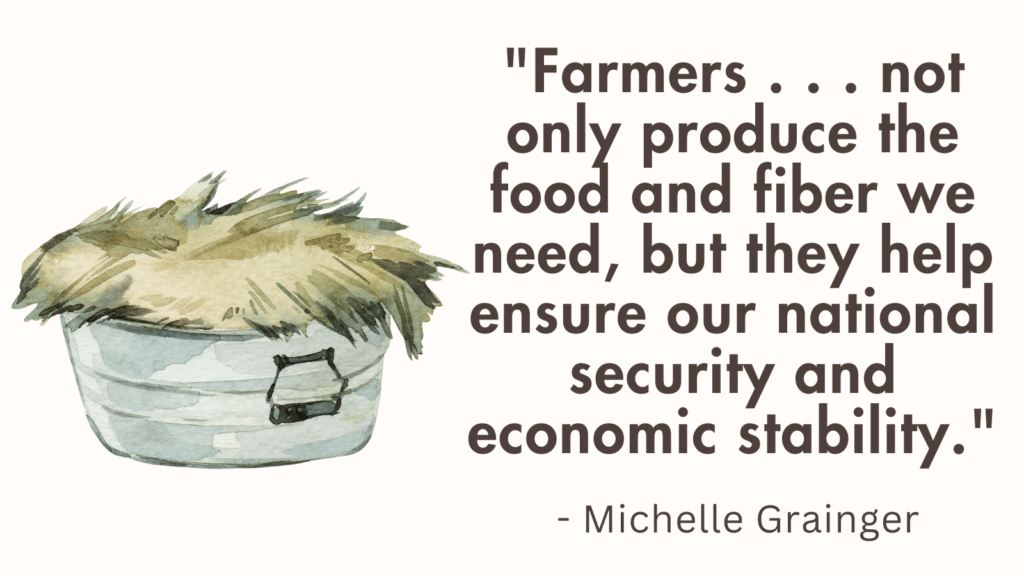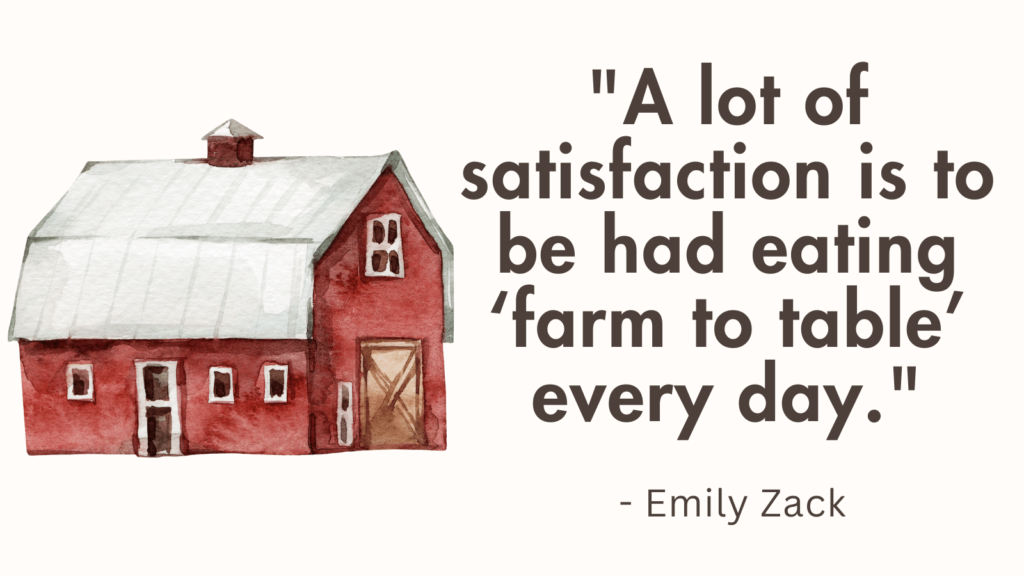Can goats eat watermelon? Read on to find out.
Can Goats Eat Watermelon?
Goats are known for their ability to eat a wide variety of plants, and watermelon is no exception.
In fact, many goats find watermelon to be a tasty and refreshing treat, particularly during the hot summer months.
Watermelon is a fruit that belongs to the Cucurbitaceae family, and its scientific name is Citrullus lanatus.
It is composed mainly of water (about 92%) and contains various nutrients such as vitamins A, C, and B6, as well as minerals like potassium and magnesium.
Feeding watermelon to goats can have several benefits.
Firstly, it is a hydrating food due to its high water content.
This can be especially important during hot weather when goats may need additional hydration to stay healthy and avoid dehydration.
Offering small pieces of watermelon can help replenish their fluids.
Secondly, watermelon can provide goats with some essential nutrients.
For example, vitamin C is an antioxidant that supports the immune system and helps protect against oxidative stress.
Vitamin A is beneficial for eye health and overall growth and development.
Vitamin B6 plays a role in energy metabolism and the production of red blood cells.
In addition to vitamins, watermelon also contains minerals like potassium and magnesium.
Potassium is involved in maintaining proper fluid balance and muscle function, while magnesium plays a role in nerve function, bone health, and energy production.
While watermelon can be a healthy and enjoyable treat for goats, it should be fed in moderation and as part of a balanced diet.
One key consideration is the sugar content of watermelon.
Watermelon is naturally sweet and contains simple sugars, mainly fructose.
Feeding excessive amounts of watermelon to goats can result in digestive upset, including loose stool or diarrhea.
The high sugar content can disrupt the microbial balance in the goat’s rumen, leading to fermentation imbalances and digestive issues.
To minimize the risk of digestive problems, it’s important to feed watermelon in moderation.
Start by offering small amounts as a treat and observe how your goats react.
If they tolerate it well, you can gradually increase the portion size.
It is also recommended to remove the seeds and rind before feeding watermelon to goats.
While goats can swallow the seeds without any harm, they can be difficult to digest and may cause obstructions.
The rind, on the other hand, is tough and fibrous, which can be challenging for goats to chew and digest properly.
Keep in mind that not all goats may enjoy watermelon.
Just like humans, goats have individual preferences and tastes.
Therefore, if you offer watermelon to your goats and they show no interest or refuse to eat it, don’t force them.
Every goat has its own dietary preferences, and it’s important to respect that.
It’s also worth noting that watermelon should not replace a goat’s main forage source, such as hay or pasture grass.
Goats are natural grazers, and their digestive systems are adapted to process fibrous plant material.
Hay and grasses provide the necessary fiber and nutrients for proper rumen function and overall digestive health.
While watermelon can be a good source of hydration and provide some nutrients, it is not suitable as a staple food for goats.
Their diet should primarily consist of high-quality forage, supplemented with appropriate amounts of grains, minerals, and other essential nutrients.
Related: How to Protect Your Watermelon Farm?
What Can Goats Eat?
Goats are known for their versatile and adaptable feeding habits.
They are natural grazers and have a unique digestive system that allows them to efficiently convert plant material into nutrients.
When it comes to what goats can eat, their diet primarily consists of forage, such as hay and pasture grass.
However, they can also consume a variety of other plants, including browse, shrubs, and certain fruits and vegetables.
1. Forage
– Hay: Goats thrive on high-quality hay, such as timothy, Bermuda grass, alfalfa, or clover. Hay provides essential fiber for proper digestion and helps maintain rumen health.
– Pasture grass: Grazing on fresh, healthy pasture grass is ideal for goats. It offers a diverse range of nutrients and allows them to exhibit their natural grazing behavior.
– Silage: Silage is fermented forage that can be fed to goats sparingly. It provides adequate nutrition but should be properly stored and used to avoid mold and bacterial contamination.
Related: What’s The Difference Between A Farm And A Ranch?
2. Browse and shrubs
– Tree leaves: Goats are excellent browsers and can consume various types of leaves from trees such as mulberry, willow, maple, and blackberry. However, certain trees like oak, cherry, and yew are toxic to goats and should be avoided.
– Shrub leaves: Goats can also browse on shrub leaves, such as blackberry, raspberry, honeysuckle, and thorny bushes like rose bushes. Again, avoid plants that are known to be toxic, such as rhododendron or azalea.
3. Fruits and vegetables
– Apples: Goats enjoy apples and can eat them without any issues. However, remove any seeds or cores, as the seeds can be harmful if ingested in large quantities.
– Carrots: Carrots are a nutritious root vegetable that goats love. They can be fed raw or lightly steamed.
– Pumpkins and squash: These are great seasonal treats for goats. They provide vitamins and minerals while also offering some hydration due to their high water content.
– Cabbage and kale: Leafy greens like cabbage and kale are safe for goats. They provide essential nutrients such as vitamin C and fiber.
– Watermelon: As discussed earlier, small amounts of watermelon can be given as a treat to goats.
Related: Does Contour Farming Work Everywhere?
4. Grains and concentrates
– Grain mix: If necessary, goats can be supplemented with small amounts of grain mix. This should be done sparingly, as excessive grain feeding can lead to digestive imbalances, obesity, and overall health issues.
– Pelleted feeds: Commercial pelleted feeds formulated specifically for goats can be offered as a supplement, especially during times when the availability of good-quality forage is limited.
– Mineral supplements: Goats require specific minerals for optimal health, including copper, selenium, and phosphorus. Providing a mineral supplement specifically designed for goats ensures they receive these essential nutrients.
5. Water
Adequate access to clean, fresh water is vital for goats. Ensure that water sources are easily accessible and regularly monitored to prevent dehydration.
It’s important to note that while goats can consume a wide range of plant material, not all plants are safe for them.
Related: Can Horses Eat Clover?
Unsafe Plants for Goats
When it comes to the diet of goats, it’s important to be aware of the plants that can be toxic to them.
While goats are known for their ability to consume a wide variety of vegetation, there are certain plants that can cause health issues or even be fatal if ingested.
To ensure the safety and well-being of your goats, it is essential to familiarize yourself with these unsafe plants and take necessary precautions to prevent their consumption.
1. Rhododendron and Azalea
Both rhododendron and azalea belong to the same family and contain grayanotoxins, which are highly toxic to goats.
These plants can cause gastrointestinal distress, excessive salivation, abdominal pain, weakness, and even heart abnormalities if ingested.
It’s crucial to keep goats away from these plants and remove them from grazing areas.
2. Yew
The yew plant contains taxine alkaloids, which are extremely toxic to goats.
Even a small amount of yew ingestion can be lethal.
Symptoms of yew poisoning may include trembling, difficulty breathing, seizures, and ultimately, heart failure.
Immediate veterinary attention is necessary if a goat has consumed any part of the yew plant.
Related: Will Chickens Stop Laying If Coop Is Dirty? [Raising Chickens Complete Guide]
3. Oleander
Oleander contains oleandrin, a cardiac glycoside that is highly toxic to goats.
Ingesting even a small amount of oleander can lead to severe health complications, including heart rhythm abnormalities, difficulty breathing, diarrhea, and muscle tremors.
Contact a veterinarian immediately if you suspect your goat has consumed oleander.
4. Nightshade
Various species of nightshade, including deadly nightshade (Atropa belladonna), black nightshade (Solanum nigrum), and horsenettle (Solanum carolinense), can be harmful to goats.
These plants contain toxic substances such as solanine and tropane alkaloids, which can cause digestive disturbances, neurological issues, and even paralysis if consumed in significant quantities.
5. Pokeweed
Pokeweed, also known as pokeberry or Phytolacca americana, contains toxins called phytolaccatoxin and phytolaccigenin.
While goats may eat pokeweed without immediate ill effects, prolonged exposure or consuming large amounts can result in severe digestive upset, dehydration, and damage to internal organs.
It’s best to remove any pokeweed from areas where goats have access.
Related: How To Keep Chickens Out Of Garden?
6. Hemlock
Hemlock, particularly the poison hemlock (Conium maculatum), is highly toxic to both humans and animals.
Ingesting even small quantities of hemlock can lead to respiratory distress, nervous system dysfunction, paralysis, and, in severe cases, death.
Identifying and eliminating hemlock from grazing areas is crucial for goat safety.
7. Red Maple
While goats generally avoid consuming red maple (Acer rubrum) leaves when fresh, wilted or dried leaves can be toxic.
Red maple leaves contain a toxin called gallic acid, which damages red blood cells and can lead to anemia, jaundice, and kidney damage.
Ensure that any fallen or wilted red maple leaves are not accessible to your goats.
8. Buttercups
Buttercups, such as the common buttercup (Ranunculus acris), contain a toxic substance called protoanemonin.
Ingestion of buttercups can lead to oral irritation, drooling, gastrointestinal upset, and, in severe cases, colic.
Preventing exposure to buttercups is vital to maintaining good goat health.
Related: How To Start Farming With No Money?
9. Walnut
Walnut trees, including black walnut (Juglans nigra) and English walnut (Juglans regia), produce a substance known as juglone.
Juglone is toxic to many plants, and even the shavings and hulls from walnuts can be harmful to goats.
The consumption of walnut can cause laminitis, a painful condition affecting the hooves, and other health complications.
10. Foxglove
Foxglove (Digitalis purpurea) contains a powerful toxin known as digitoxin, which affects the cardiovascular system.
Ingesting foxglove can lead to irregular heart rhythms and heart failure.
Goats should be kept away from foxgloves, and immediate veterinary attention is necessary if consumption is suspected.
These are just a few examples of plants that can be toxic to goats.
It’s important to note that different regions may have specific plants that are unsafe for goats, so it’s advised to consult local agricultural extension offices or veterinarians for a comprehensive list of toxic plants in your area.
Related: Does Clover Grow In Shade?
Conclusion
When introducing new foods or making changes to your goats’ diet, it’s important to do so gradually to avoid digestive upset.
FAQ
How much should I feed my goats?
The amount of food to feed your goats depends on various factors, including their age, weight, activity level, and the quality of the forage.
As a general guideline, adult goats typically require around 3-4% of their body weight in forage daily.
However, it’s important to monitor their body condition and adjust the feeding amounts accordingly.
Can goats eat grass clippings?
While goats can eat grass clippings, it’s not recommended to feed them large quantities or clippings that have been treated with chemicals or pesticides.
Moldy or fermented clippings should also be avoided as they can cause digestive issues.
Can goats eat bread?
Bread is not an ideal food for goats.
While they may eat it, bread lacks the necessary nutrients and fiber needed for their overall health.
It should be given sparingly, if at all, as a treat.
Related: How to Grow Winter Peas?
Can goats eat corn?
Yes, goats can eat corn.
However, corn should be fed in moderation and ideally as part of a balanced diet.
It should not exceed more than 10-15% of their total diet, as excessive corn consumption can lead to digestive issues.
Is it safe to feed my goats kitchen scraps?
Feeding goats kitchen scraps can be done cautiously and in moderation.
However, it’s essential to avoid giving them foods high in salts, sugars, processed foods, or anything that might contain harmful additives.
Prioritize fresh fruits and vegetables while avoiding leftovers that may be spoiled or moldy.
Can I feed my goats only on pasture grass?
In an ideal scenario, goats should have access to a variety of forage options, including pasture grass.
However, if the pasture grass alone does not provide sufficient nutrients, it may be necessary to supplement their diet with hay or other feeds to ensure they receive proper nutrition.
Related: Garden Tool Box [Complete Guide + Resources]

Garden Cart
*As an Amazon Associate I earn from qualifying purchases, at zero cost to you, if you click through the link and finalize a purchase.




